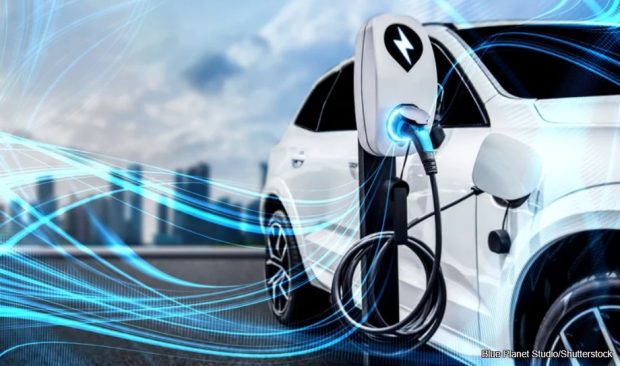
Govt incentives, charging infrastructure key to drive EV penetration in India: Moody’s
PTI, Apr 12, 2023, 4:57 PM IST

Representative Image (Source: Shutterstock)
New Delhi: Government incentives, including those to consumers, local battery manufacturing, state-level subsidies and cut in GST rates would help drive EV penetration in India, Moody’s has said.
In a report, Moody’s Investors Service said India has the fourth-largest car market globally, but electric vehicle (EV) penetration is currently only around 1 per cent.
The pace of increase in EV sales and towards the government’s target of 30 per cent by 2030 will also depend on the country’s charging infrastructure, and consumers’ readiness to switch to EVs from traditional ICE vehicles, or those traditional engines powered by petrol, diesel, or natural gas.
“We expect various government incentives will drive an increase in EV penetration. These include consumer incentives, production-linked incentives for advanced battery storage to drive local cell manufacturing, goods and services tax (GST) rate cuts, and other state-level subsidies,” Moody’s said.
India has beaten Japan to become the third-largest vehicle market in 2022 after China and the USA.
Last month, Union Minister Nitin Gadkari had said that if India can use the lithium reserves recently discovered in Jammu and Kashmir, it can become the world’s number one automobile manufacturer in electric vehicle segment.
Lithium is a crucial element in producing batteries that power electric vehicles.
The government aims to have EV sales accounting for 30 per cent of private cars, 70 per cent for commercial vehicles and 80 per cent for two-and three-wheelers by 2030.
Moody’s said Tata Motors retains an early mover advantage in the battery EV market in India, with a 85 per cent share (April-December 2022).
Presence through 250 dealers across 165 cities, and with close to 4,300 charging points, has already allowed the company to sell some 50,000 EVs, Moody’s said.
Tata said it plans to increase its EV line-up from four models to 10, by March 2026. Tata’s EV business has already raised USD 1 billion from private-equity investor TPG, it added.
Last year, global battery electric vehicle sales were around 8 million, with 65 per cent of these in China. Europe represented nearly 20 per cent. Consumers in those regions benefited from the government incentives and automakers’ expanded product offerings, Moody’s said.
“We expect Battery Electric Vehicles’ (BEVs) share of global light vehicle sales will grow from around 10 per cent of new vehicle registrations currently to more than one-third by 2030 and to nearly half by 2035,” it added.
Udayavani is now on Telegram. Click here to join our channel and stay updated with the latest news.
Top News

Related Articles More

Passenger vehicle wholesales up marginally at 3,93,238 units in Oct: SIAM

HMSI recalls GL1800 Gold Wing units to fix faulty component

Hero MotoCorp looks to scale up EV biz, lines up new models

Royal Enfield forays into electric bike segment; unveils first model under Flying Flea brand

Maruti Suzuki looks to cash in on ‘few lakh marriages’ in Nov to carry festive sales momentum
MUST WATCH
Latest Additions

Siddaramaiah says confident of winning all three bypolls in Karnataka

Hop on! IT Minister Priyank Kharge checks out Uber Shuttle at Bengaluru Tech Summit

Actress Kasthuri released from jail, says ‘I thank those who made me raging storm’

Kidnapped for ransom in 1998, 26/11 survivor Gautam Adani faces biggest trial

AIMPLB to hold its annual general sessions in Bengaluru from November 23
Thanks for visiting Udayavani
You seem to have an Ad Blocker on.
To continue reading, please turn it off or whitelist Udayavani.





















